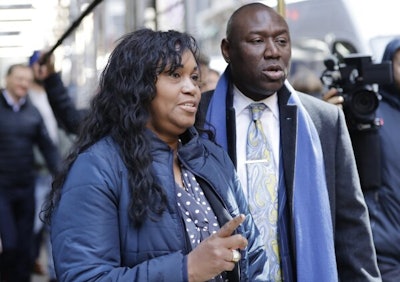 Tamara Lanier with attorney Benjamin Crump
Tamara Lanier with attorney Benjamin Crump
In a precedent-setting resolution that has implications for how higher education institutions confront their historical ties to slavery, Harvard University has agreed to relinquish 175-year-old daguerreotypes believed to be the earliest known photographs of enslaved people. The settlement ends a six-year legal battle and represents what attorneys call an "unprecedented" victory for descendants seeking accountability from academic institutions.
The daguerreotypes of Renty, an enslaved man, and his daughter Delia will be transferred from Harvard's Peabody Museum of Archaeology and Ethnology to the International African American Museum in South Carolina, where the photographs were originally taken in 1850. The resolution includes an undisclosed financial settlement and marks the culmination of a 15-year campaign by Tamara Lanier, who identifies as Renty's great-great-great-granddaughter.
The case highlights the complex relationship between American higher education and slavery, forcing institutions to grapple with how historical artifacts tied to racial exploitation should be stewarded in the modern era. Harvard's involvement dates to 1850, when Professor Louis Agassiz commissioned the photographs to support polygenism—a now-debunked theory that claimed Africans and African Americans were biologically inferior to whites.
Agassiz, a Harvard biologist, toured South Carolina plantations seeking racially "pure" enslaved individuals born in Africa. Renty and Delia were forced to pose shirtless and photographed from multiple angles without their consent, with the images intended to provide scientific justification for slavery and later segregation.
"Papa Renty was taken from his descendants and used to promote a lie – but today, he has finally been returned to the love and care of his family," said civil rights attorney Ben Crump, who represented Lanier alongside Joshua Koskoff. "This historic settlement is a step forward in the pursuit of justice and a recognition of the pain caused by the dark history of exploiting enslaved people."
Lanier's 2019 lawsuit broke new ground in challenging how universities handle artifacts connected to slavery. While Massachusetts courts ultimately ruled that photographs belong to the photographer rather than the subject—affirming Harvard's legal ownership—the state's Supreme Court allowed Lanier's emotional distress claims to proceed, recognizing "Harvard's complicity in the horrific actions surrounding the creation of the daguerreotypes."
The court's historic opinion affirmed that "Harvard's present obligations cannot be divorced from its past abuses," establishing important precedent for how institutions must address their historical wrongs even when legal ownership is clear.

















